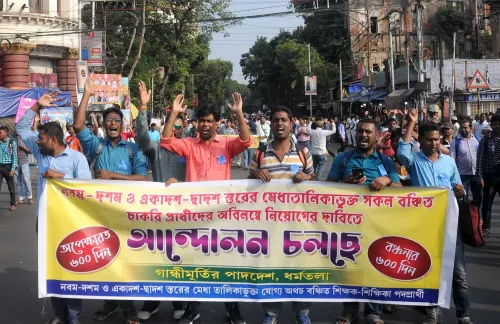Is KC Venugopal Right to Criticize ECI for Delaying Karnataka Voter Probe?

Synopsis
Key Takeaways
- ECI accused of collusion with BJP
- Allegations of voter disenfranchisement in Karnataka
- Investigation by Karnataka CID stalled
- Calls for transparency in electoral processes
- Impact on public trust in elections
Bengaluru, Sep 7 (NationPress) MP and Congress general secretary K.C. Venugopal has accused the Election Commission of India (ECI) of "functioning as an ally of the BJP". On Sunday, he claimed that the electoral body is obstructing a Karnataka government investigation into the alleged disenfranchisement of voters in the Aland Assembly constituency during the 2023 elections.
Venugopal, a prominent Congress leader, suggested that the ECI is "colluding with the BJP in a blatant theft of votes".
He expressed his concerns on X, stating, "The ECI's obstruction of vital documents in the Karnataka CID’s inquiry into fraudulent voter deletions in Aland constituency highlights their role in concealing critical evidence of large-scale electoral manipulation."
According to Venugopal, "The Karnataka Government's investigation relies on ECI documents, which are foundational to all elections in India. Withholding evidence is a violation of their Constitutional duty to guarantee free and fair elections. They must uphold full transparency and cease acting in the interests of the BJP."
He further asserted, "This situation validates the Opposition's concerns - the ECI and BJP are collaborating in a blatant theft of votes. The ECI can no longer evade accountability; they must respond to the citizens of India regarding their involvement in this democratic violation."
Venugopal's recent criticism of the ECI arises amid accusations that fraudulent applications were submitted online to disenfranchise voters in the constituency ahead of the May 2023 Assembly elections.
The ruling Congress party has claimed that the case filed by the state Criminal Investigation Department (CID) has stalled since 2023, as the ECI has allegedly failed to provide vital data such as destination IPs and ports. This information is essential for identifying the devices used to submit the purported applications for voter deletion, which were claimed to be based on the argument that these individuals had changed their addresses.









